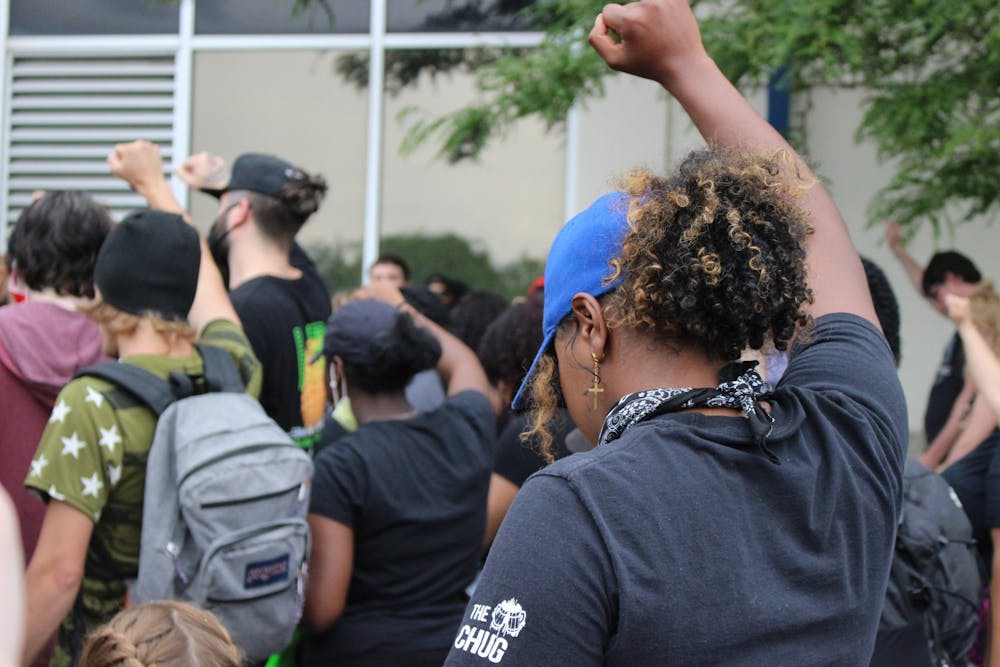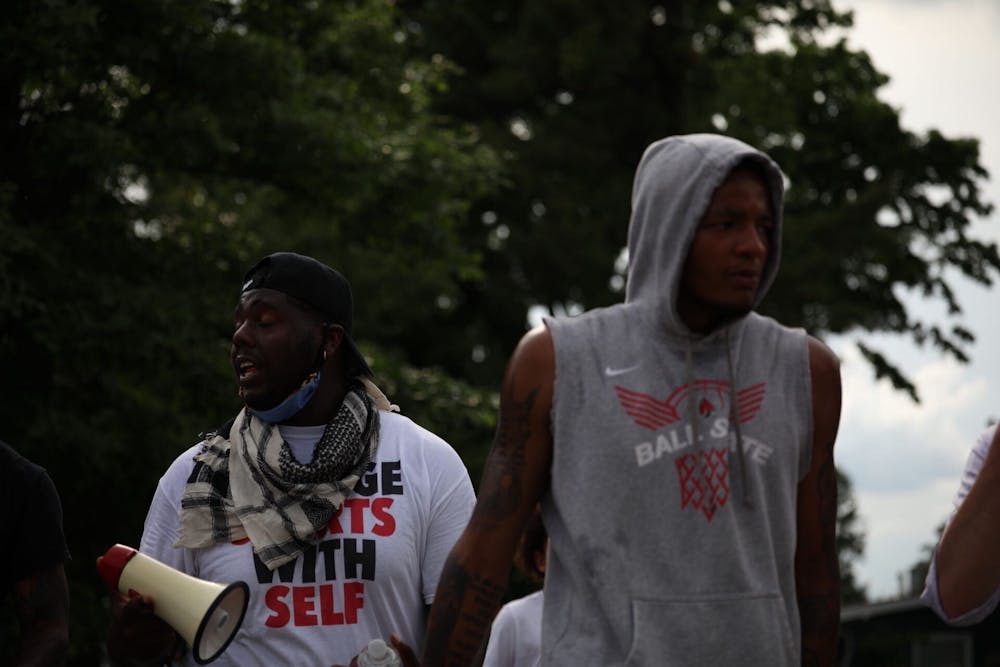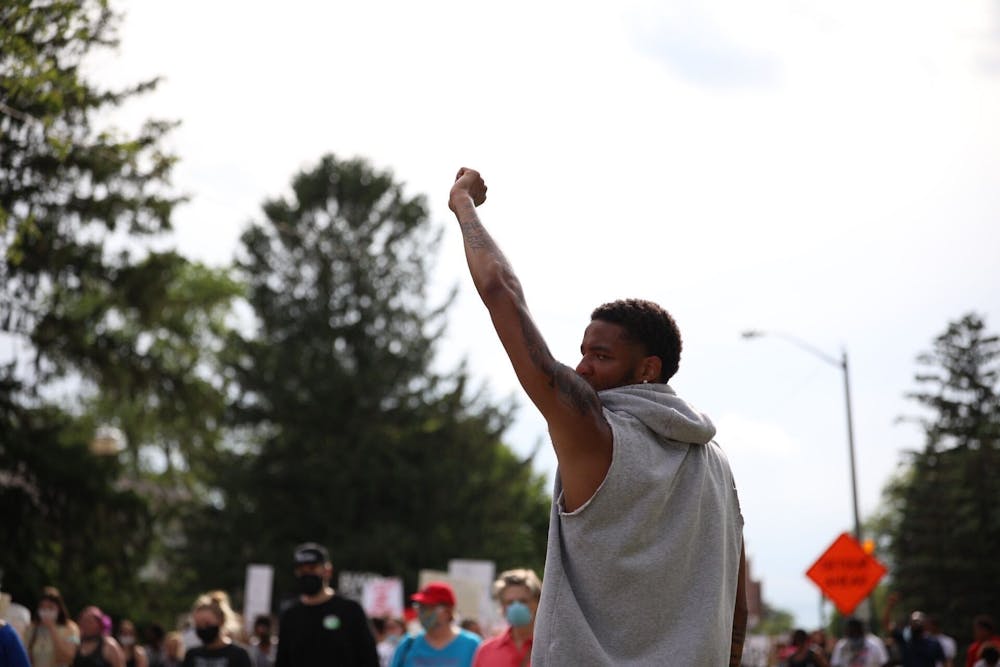This time, it was different.
Every time a police officer kills an unarmed black man or woman, Ball State Men’s Basketball junior guard Ishmael El-Amin said he winces at the thought of somebody else senselessly dying.
But this time, it happened in his hometown. El-Amin grew up roaming those streets, and his family lives not far from the Cup Foods store where, on May 25, 2020, George Floyd was murdered by members of the Minneapolis Police Department.
When El-Amin heard that somebody was killed in his neighborhood, he knew he had to speak out.
Growing up, his mother always let him know that it is OK to speak out and that he wouldn’t get in trouble for doing so.
“It felt natural for me to take a stance and to let Muncie know that we’re going to do something,” El-Amin said. “Because at the time, Ball State University President [Geoffrey] Mearns or [Muncie] Mayor Dan Ridenour hadn’t said anything about it.”
El-Amin felt it was a problem that nobody in his community spoke out about the death of Floyd. That’s when he and his roommate, Sultan “Mufasa” Benson, decided to plan a march.

A protester raises their fist along with others in the crowd June 4, 2020, at Muncie City Hall. People at the protest march held up their fists in support of the nationwide protests following the death of George Floyd. Bailey Cline, DN
Benson gained attention when, on Jan. 21, his professor called the Ball State University Police Department on him after he refused to move seats in class.
The two men thought if they took local action, then more people in the Muncie community would speak out.
On June 4, a few thousand people from the Muncie and Ball State community gathered and marched from Shafer Tower on the university’s campus to Muncie City Hall.
Multiple prominent figures from the university including President Geoffrey Mearns and Men’s Basketball head coach James Whitford attended the march.
Whitford said he was proud to see El-Amin stepping up and organizing the march.
“He’s doing something much bigger than basketball,” Whitford said.
Ball State Director of Athletics, Beth Goetz, said when she found out El-Amin had planned a march, she was proud, yet heartbroken.
“You’re hurting for him, but at the same time, you’re proud to see that they’re taking their pain and trying to bring people justice in their fight for racial injustice,” Goetz said.

Sultan “Mufasa” Benson (Left) and Ishmael El-Amin (Right) walk during the peaceful protest, June 4, 2020, on University Avenue. Benson and El-Amin organized the protest together. Jacob Musselman, DN
El-Amin said the march was only the beginning. He wants to continue to speak out against racial injustice but do it constructively.
“We’re going to continue to speak out, and do it in ways that do not lead to more violence,” El-Amin said. “Because violence is never the answer.”
Goetz said that in small communities like Muncie, where the university is so prominent, student-athletes have a big voice.
“They recognize that their platform exists and kids in the community look up to them,” Goetz said. “Because your community is going to get to know you and what you stand for and what’s important to you.”
Goetz said the university is trying to figure out its role in battling racial injustice and that it was nice to see their student-athletes lean into that movement.
“It’s our job to support our student-athletes,” Goetz said. “We’ll stand beside [El-Amin].”
Sports is another avenue of education, Goetz said. She said times like these are when she’s reminded that it’s her job as an educator to help student-athletes navigate through these issues.
“We want to step into these conversations and be a part of listening and actively participating,” Goetz said.
Contact Jacob Musselman with comments at jhmusselman@bsu.edu or on Twitter @jhmusselman.





